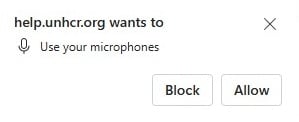ON THIS PAGE YOU CAN LEARN ABOUT:
• Family reunification as a refugee or a beneficiary of subsidiary protection
• Family reunification as an asylum-seeker
Family reunification as a refugee or a beneficiary of subsidiary protection
Eligibility for family reunification as a refugee or a beneficiary of subsidiary protection
If you have been granted refugee status or subsidiary protection, it is possible to bring your family members to Hungary or join them in another EU member state. Please note that family reunification is a complex process, so it is recommended that you seek legal assistance and counselling.
As a refugee or beneficiary of subsidiary protection in Hungary, you can bring the following family members:
- Spouse, if you were already married when you entered Hungary.
- Children under 18 years old, including adopted children.
- Parents or guardians, if you are under 18.
- Parents who are unable to provide for themselves due to having serious health problems, or who are dependent on you.
- Brothers or sisters, or any direct relatives who are unable to provide for themselves due to having serious health problems.
Family reunification process as a refugee or a beneficiary of subsidiary protection
For recognized refugees and beneficiaries of subsidiary protection, the family members are responsible for initiating the family reunification procedure. Your family members must travel to the nearest Consulate of Hungary to submit their application in person. However, the Consulate does not make the final decision. They forward the applications to the National Directorate-General for Aliens Policing (NDGAP) in Budapest, which makes the decision.
To begin the family reunification process, the following documents should be provided to the Consulate for each family member:
- Completed general residence permit application form and specialised questionnaire for family reunification.
- Valid passport.
- One recent passport photo.
- Proof of payment of a procedural fee of EUR 110.
- Documents demonstrating the family ties between you and your family member.
- Additional supporting documents, such as medical records for health problems or proof of dependency.
Family ties can be demonstrated by any credible means available to you (such as birth and marriage certificates). You also have the option to request a DNA test, but please note that you will have to bear the associated costs.
Please also note that if you are a beneficiary of subsidiary protection, or a refugee whose family members initiated the family reunification procedure after the first three months of your status approval, your family members must show proof of the following additional requirements:
- Accommodation for themselves in Hungary.
- Livelihood for themselves in Hungary.
- Health insurance for themselves in Hungary.
If the NDGAP approves your application, they will notify the Hungarian Consulate where your family members applied for family reunification. The Consulate will issue a single-entry visa (called type “D” visa) to your family members, allowing them to travel to Hungary. Within 30 days of their arrival, they can collect their residence permit, which is delivered to the address indicated in the application form.
Family reunification as an asylum-seeker
Eligibility for family reunification as an asylum-seeker
Family reunification is also possible in specific cases if you are an asylum-seeker in Hungary, and your close family member (child under 18 years old, spouse, in the case of an unaccompanied child, a close adult relative, or in situations of dependency, a parent, sibling and child) is an asylum-seeker or refugee in another EU Member State.
Family reunification process as an asylum-seeker
If you were separated from your family members while fleeing and applied for asylum in different EU Member States, family reunification may occur, and your asylum applications will be considered together. If your close family member's asylum procedure is already underway in another state or if they legally reside or have refugee status there, that state will handle the applications.
To facilitate this process, inform the asylum authority during your initial interview about your family members in other EU Member States. You will need to submit written consent to have your asylum application combined with your family members' applications in different Member States.


